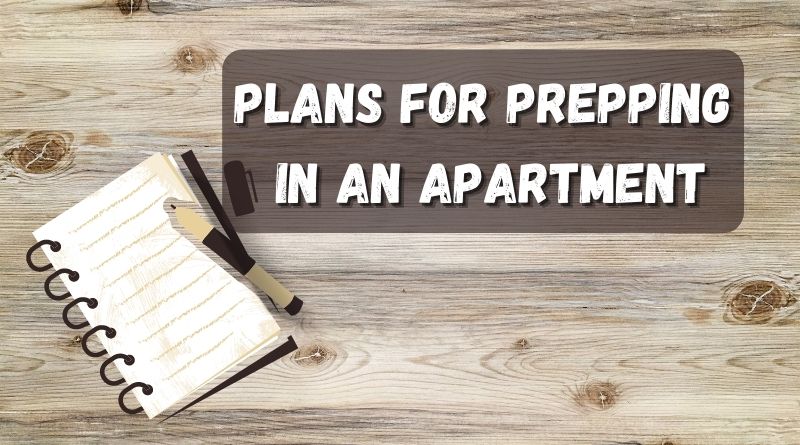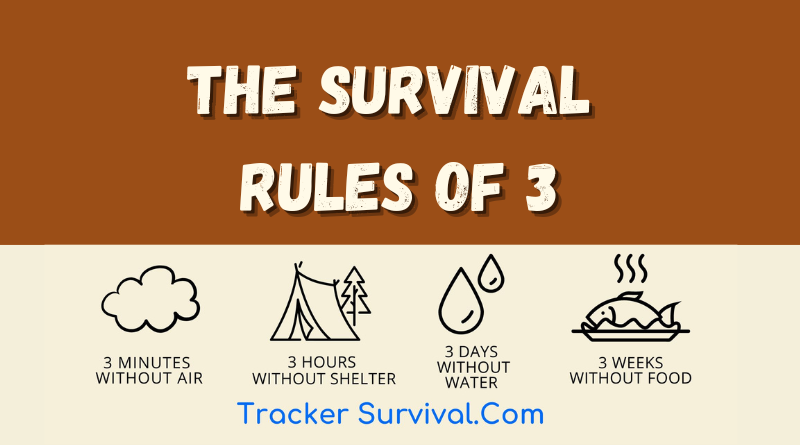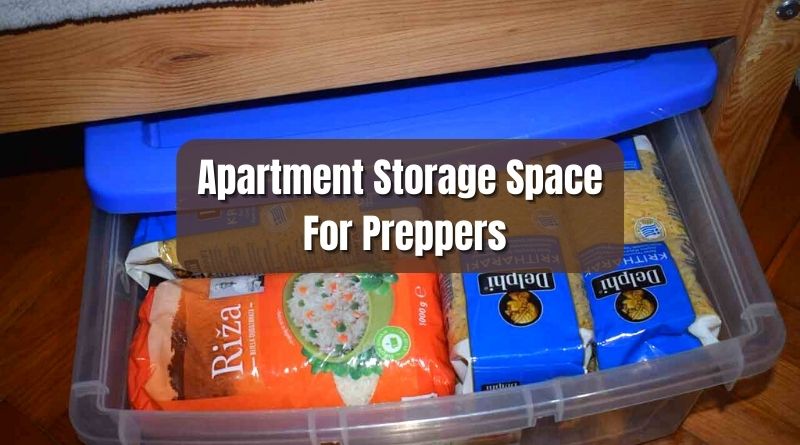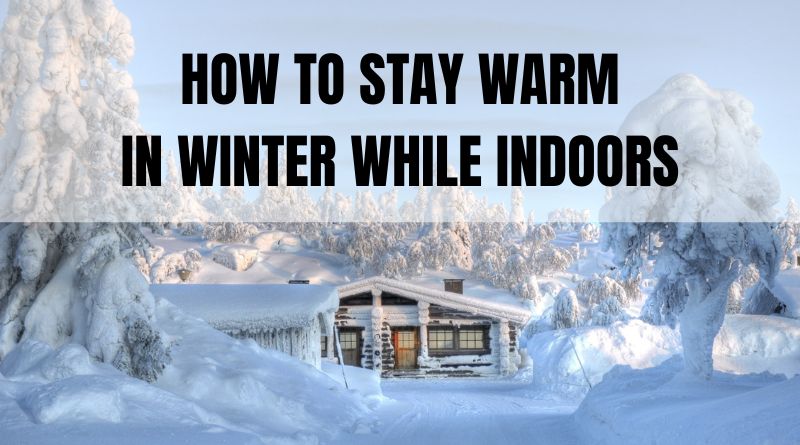Prepping In An Apartment The Challenges
The pandemic has raised public awareness of prepping on a whole new level, prepping has become more mainstream for a while now. But the pandemic has opened the eyes of many who have in the past scoffed at the prepping community. But prepping in an apartment comes with its challenges. Most obviously space constraints and the lack of a garden to grow produce.
Where in the past preppers were perceived as doomsayers and militants who stockpile ridiculous numbers of guns and ammo. The public is now aware that the majority of preppers are just regular people who want to prepare themselves and their families against possible disruptions to their daily lives.
Now that we have established that preppers come from all walks of life, we need to accept the fact that a large number of people live in apartments. City folk have a harder time prepping than people living in the suburbs or more rural areas. An apartment is not a great environment for preppers. There are a variety of challenges that apartment dwellers face.

Plans For Prepping In An Apartment
Making plans for bugging in an apartment are quite different than in a rural home. The first step to prepping in an apartment is taking stock of exactly how long it is possible to survive if you were confined to the apartment right now. Once you have established that baseline. You can now make plans for increasing that timeline substantially with a bit of proper planning. The rule of 3s still applies while indoors. So let’s address those issues first.
Shelter, water, and food, then let’s look at some basics that also need to be covered. Medical supplies and hygiene products.
Do NOT forget pets or special needs (prescription medication, etc).
How To Stay Warm In An Apartment When The Grid Goes Down
People tend to forget how cold an apartment/house can get without heating. The best way to stay warm during the day is to dress up in winter clothes and stay active. At night use a good 4 season sleeping bag, or a lot of wool, fleece, or down blankets. Another little tip is if it gets really cold, set up a small tent indoors or make your own microenvironment, hang up blankets around your bed like a 4-poster bed. For more ideas on how to stay warm in an apartment click on this article How To Stay Warm In Winter While Indoors.

Apartment Storage Space For Preppers
In an apartment, space is the biggest issue when it comes to prepping, water and food take up a surprising amount of space. Optimizing space is going to be a priority, every inch of space needs to be utilized efficiently. There are many nooks and crannies that people overlook in an apartment. Spaces like under the bed, under sofas, behind sofas, the top of a refrigerator, under the kitchen sink, etc.

Be A Minimalist
Most people tend to collect a lot of stuff that they do not need. If the plan is to be a prepper living in an apartment, that is a luxury you cannot afford. Be a minimalist when it comes to unnecessary items. Do you have boxes of books or magazines you have already read, a closet full of clothes that you do not wear, cupboards full of fancy dishes and cutleries, a display case of knick-knacks, a drawer full of old electronics (mobile phones, obsolete laptops, gaming consoles, etc) that you keep are reluctant to part with? sell or donate them. Lack of space and clutter is your enemy.
Prepping Priorities For Apartment Dwellers
Priorities for apartment preppers are the same as for preppers who live in landed properties, except of course on a smaller scale.
But always start with step one: get a Bug Out Bag. Then start prepping these items. I know bugging out may not be part of your plan, but they may come a time when it is the ONLY option, and you want to be ready for that eventuality. For the ultimate FREE bug-out bag checklist just click on the Image. Once you have a bug-out bag you are confident will sustain you for 72 hours. Start prepping your apartment with:
Basic Apartment Prepping
Clothes, that are suitable to your environment, if you live in a 4-season country, make sure to get good winter clothes.
Sleeping bag, Modular sleeping bags are the best, as they can be used all year round.
Water is going to be an issue, as it is needed not only for consumption but also for cooking, cleaning, and sanitation purposes.
Food, if the food items bought are chosen for maximum space efficiency and properly stored, it is possible to keep quite a lot of food in an apartment.
Method to cook food, with the grid down, you will need to have a way to cook or prepare food. Camping stoves are a short-term solution, solar ovens if there is a balcony, and the Sun of course.
Medicine, basic first aid, an Ifak, prescription medication, and of course first aid training in how to use the medical gear.
Hygiene products, toothbrushes, soap, shampoo, toilet paper, etc.
If you have enough gray water, you can use that to flush the toilet. If you don’t have gray water, then consider getting a camping toilet. It’s not optimal, but may be necessary. If there are no camping or chemical toilets available, consider using plastic bags in sealable airtight buckets. The plastic bags can then be disposed of later.
Batteries and power banks, use to power devices portable devices, eg: mobile phones, radios, and flashlights.
Fire-making devices, lighters, matches, and a Ferro rod for the go bag.
Candles can be used for lighting. They do generate a little bit of heat, and a little is better than nothing.
Flashlights, a few if possible. Get a few cheap throwaway flashlights, as well as at least 1 or 2 good ones, a couple of examples of good flashlights, would be the Fenix PD35 or Olight S2R
Heavy Duty Garbage Bags, there are going to be dozens of uses for these.
Duct Tape, get at least a couple of different types.
Sealable Plastic Buckets, You can use them to store food, when the food is emptied of the buckets, they can be used to dispose of waste.
Water Storage In Apartments
Water storage is going to be the biggest issue, apartments usually have quite small bathrooms, if you are one of the lucky ones and there is space, buy a 55-gallon food-grade barrel and store it in the bathroom. Also, get water bricks they are possibly the best way to store water in an apartment. They can be stacked under beds, or in the closet. Stack them, put a piece of wood on top and they can be used as a coffee table. And remember to buy bottled water, buy them in all sizes and squeeze them everywhere there is extra space.
Water catchments will be tricky at best, you may be able to gather a little for sanitary use, be creative. You can hang out a thick absorbent blanket and squeeze the water into buckets once it’s soaked. Just make sure with well-tied down or you may lose that blanket.
Prepping Food Stores In Apartments
This is not going to be a luxury vacation, buy food items that can fill your belly, take up minimal space, and is easy to prepare. Rice, pasta, flour, canned meats, canned vegetables, nuts, peanut butter, powdered milk, packets of instant soups, ghee, oats, cooking oil, tomato paste, tomato puree, etc.
This is not going to be the most nutritionally balanced meal, so stock up on multivitamins and mineral supplements.
Growing Produce In An Apartment
If possible, grow produce in your apartment, I had a friend grow 3 tomato plants, chili, and paprika on his apartment balcony. Potted herbs can be hung on window sills.
First Aid And Medical Prepping In An Apartment
Luckily first aid kits and medicine only take up a minimal amount of spare. But they are useless if you do not know how to use them. Get first aid training.

Cooking In An Apartment When The Grid Goes Down
If the grid goes down, and there is no electricity or gas, cooking is going to be an issue. Camping stoves are great, and propane tanks are an option if set up properly. Solar ovens are good if there is sunlight available. Some foods can be eaten cold, do that if resources are scarce.
Apartment Safety When The SHTF
While it would be great if people did not prey on other people, sadly the world is a messed up place, which is why we lock our doors at night. But sometimes that may not be enough. And for those situations, consider reinforcing your apartment door. And if possible some form of self-defense gear, like a gun, taser, pepper spray, or a bladed weapon, make sure whatever self-defense weapon you choose, you know how to use it. Also, consider learning self-defense or any form of martial art.
Under apartment safety, I would assume that you have all the essential detectors, carbon monoxide, gas, and smoke detectors. If you do not have these, they should be on your priority list. As no apartment should be without them.
Evacuating From An Apartment In An Emergency
I know that writing about evacuating an apartment in the same post that details how to prep to stay in may seem ridiculous. But plans don’t always work out, and if you ever do need to leave in a rush. Make sure that you know where all the emergency exits are, that you do NOT use the elevator and that you have your bug-out bag with you.
BOL (Bug Out Location)
Now the worst-case scenario has arrived, you have no choice but to leave. Make sure that you have a bug-out location to go to. A planned way to get there, and enough resources to reach your bug-out location. Many people have visions of taking their bug-out bag, going into the woods, and surviving like in the movies. The truth is that without training and practice, they will not survive for long. Have a plan, and have a bug-out location.
Conclusion:
Prepping for an apartment is possible. But apartment dwellers need to be aware that no matter how well an apartment dweller preps, there is a finite amount of time that a person can sustain themselves with the prepped stores in an apartment.
Depending on the size of the apartment, and how well a prepper optimizes the space. The time may range from a few weeks to a couple of months. But unless the apartment is exceptionally large, more than that is very unlikely (unless the apartment happens to have a water tower on the roof😁).
The grid either comes back on, or the apartment dweller needs to consider other options such as bugging out to another location. The sad truth is that apartments were not designed for bugging in long term. Only if there is an end in sight or if the grid comes on intermittently (every few days or weekly). Is the possibility of staying longer than a couple of months viable. The biggest problem will be water, there is only so much water that can be stored in an apartment.
